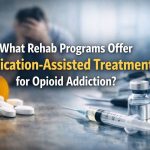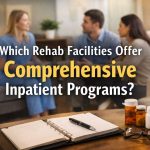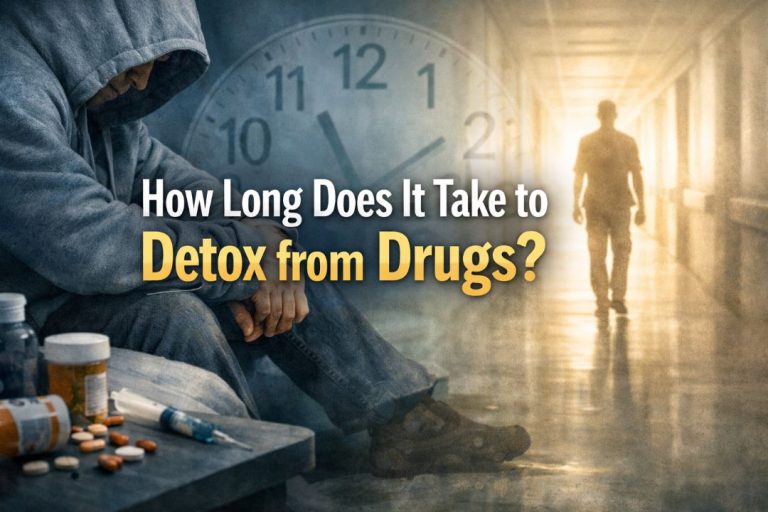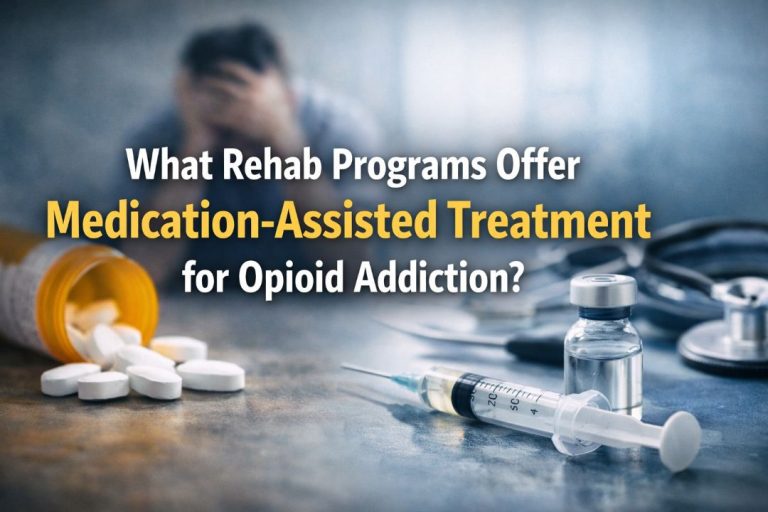When you or a loved one struggles with addiction, you may find that joining a treatment program is the best solution. Searching for a program that fits your unique needs can be overwhelming.
This article guides you on how to choose a rehab center that will best fit your needs or those of a loved one. Below, we will cover the following:
- Determining what your needs are
- Exploring levels of care
- Treatment center credentials and licensing
- Program care length and location
- Specialized programming and treatment success rates
- Insurance coverage and Cost
Identifying Your Needs
When choosing a drug and alcohol rehab center in Florida, the first step is to understand your specific needs or the needs of your loved one. This is important as it helps narrow down the options to find a program that aligns with your situation and goals for recovery. Consider the following:
- What substances or behaviors are you recovering from?
- Are there underlying mental health conditions such as depression or anxiety or medical conditions such as heart disease?
- What behaviors do you want to change?
- How your substance use is affecting aspects of your life
- Are you in need of detox treatment?
Identifying your needs for the above factors can guide whether inpatient or outpatient treatment would suit your recovery. It may be helpful to determine if there are elements of treatment that you consider valuable or desirable during your recovery. Examples of this could be:
- Fitness center
- Outdoor pathways or nature recreation areas
- Access to nutritionist
- If inpatient, private rooms
- Meditation or Mindfulness programming
- Music therapy
Determining the level of care you need can help you choose the right drug rehab program more clearly.
Levels of Care
Two primary levels of care are offered at rehab facilities: inpatient and outpatient. Inpatient rehab involves patients living in a residence facility at the treatment center. Inpatient treatment allows patients access to care around the clock with many therapeutic options. Inpatient rehab is often the best option for the treatment of patients in need of a detox program.
Outpatient rehab allows you to receive treatment while living in your primary residence. Although it may appear less intensive than inpatient rehab, outpatient rehab offers a variety of intensities depending on what therapies might be most helpful to your recovery.
It is also essential to look into what specialties different treatment centers offer. A high-quality rehab program will offer a variety of treatment approaches. Many rehab centers will have 1-2 areas of treatment that they specialize in, such as benzodiazepine detox. Another consideration to look for when researching different facilities is if they provide programming that specializes in specific populations, such as veterans or populations suffering from trauma.
100% Confidential Support is Available 24/7
No matter what you’re going through, you’re not alone. Our dedicated team is here to provide a safe, judgment-free space where you can talk openly and honestly. Whether you need emotional support, resources, or just someone to listen.
We’re here for you—completely confidential and always respectful of your privacy. Call us today!
Credentials and Licensing
The first thing to look for regarding a rehab center’s credentials is whether it is accredited by The Joint Commission or the Commission on Accreditation of Rehab Facilities (CARF). Both of these nonprofit organizations Base their certifications on a rehab facility’s value, quality, industry performance standards, and patient outcomes. Other well-known accreditations to look for in a facility are:
- A State-Specific Chemical Dependency Facility Licensure (learn more about Florida’s requirements).
Other areas of accreditation to consider the licensures held by the medical professionals who provide care at a facility. Identifying professional licensures can be important in determining the specialty treatments offered and how well-rounded the care system is. Some examples of these credentials are:
- Licensed Social Worker (LSW)
- Certified Addiction Counselor (CAC)
- Certified Co-Occurring Disorders Counselor (CCDP)
- Licensed Chemical Dependency Counselor (LCDC)
- National Certified Addictions Counselor (NCAC)
Contact Solutions Healthcare
Battling with Drug and Alcohol Addition? Remember, you are not alone and we are here to help you!
Program Length and Location
The time spent in treatment is often best determined by your progress rather than a specified number of days. Some substance abuse programs give an estimated time frame, but if progress isn’t made during that period, the length of time in treatment could be extended. Look for programs that provide multiple levels of rehab so that as progress is made, the transition to a less intense level of care is simple.
Location is an essential factor in the decision-making process for a few reasons. If the facility is not incredibly far from your permanent residence, it makes attending outpatient sessions easier for travel and following through on your commitment. It also makes getting to any follow-up appointments or meetings easier upon exiting your treatment program.
If you are completing inpatient care, being nearby friends or family may be helpful if you are allowed visitors or if family or caregivers are asked to come in for group therapy sessions.
Specialized Programming and Treatment Success Rates
Treatment centers can often specialize in treating certain forms of addiction or behaviors. For example, a treatment center may specialize in treating alcohol use disorder. In contrast, another may specialize in treating patients with a dual diagnosis that often has higher success when both conditions are treated simultaneously.
It is very important to select a treatment program that specializes in and has a positive track record of treating patients with your specific needs. A great way to check a facility’s success is to see if it offers clinical study outcomes. You can also consider positive testimonials left by patients or caregivers, but be cautious not to rely completely on these reviews.
Insurance Coverage and Cost
For many, cost is the biggest factor in choosing a treatment program in Florida. The truth is that treatment costs vary dramatically depending on the facility, the length of stay, and the programs you participate in.
Luckily, many options are available to help patients pay for treatment, with options fitting a variety of budgets. Overall, it is important to remember that the financial toll of long-term addiction is far greater than any treatment stay.
Some payment options to consider when researching facilities:
- What private insurance does the facility accept?
- Do they take Medicaid or Medicare?
- Do they accept Military Insurance (Tricare)?
- Do they offer patients the opportunity to set up payment plans?
- What does out-of-pocket cost look like?
- Do they accept IHS/Tribal/Urban (ITU) funds (from Indian Health Services)?
- Do they receive any grants, or are they funded by the government?
If you are using any kind of insurance, it is essential to find out which treatment centers are in-network with your provider before starting treatment.
Certain treatment providers may claim to “work with your insurance” company, but this doesn’t guarantee they are part of your network. When in doubt, consult your insurance provider.
100% Confidential Support is Available 24/7
No matter what you’re going through, you’re not alone. Our dedicated team is here to provide a safe, judgment-free space where you can talk openly and honestly. Whether you need emotional support, resources, or just someone to listen.
We’re here for you—completely confidential and always respectful of your privacy. Call us today!
Find Drug & Alcohol Rehab in Florida Today
With numerous options available, finding treatment might seem overwhelming. At Solutions Healthcare, we provide exceptional behavioral healthcare for individuals, families, and communities in Central Florida and beyond.
Our comprehensive range of dual-diagnosis residential and community-based programs cater to the unique needs of those affected by mental health and substance use disorders. Using clinically proven, evidence-based models of care, we deliver practical and sustainable solutions that empower and support our clients on their journey to healing and recovery.
To learn more about our drug and alcohol rehab programs in Florida or to get started with a confidential, risk-free assessment, please contact us today.
References
- Florida Department of Children and Families: Substance Use Disorder Licensing and Regulation
- US Department of Health and Human Services: Health Information Privacy






















